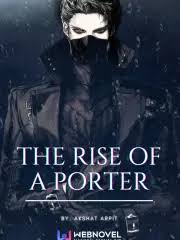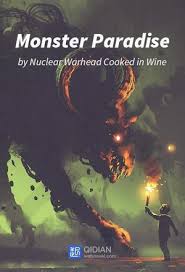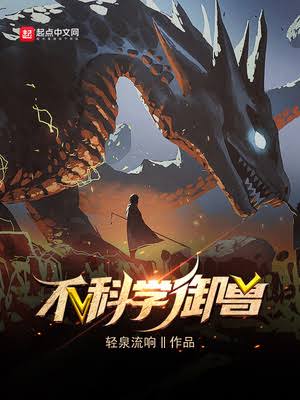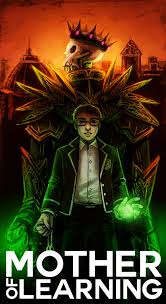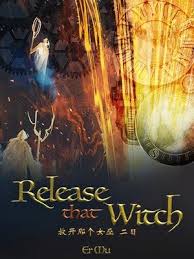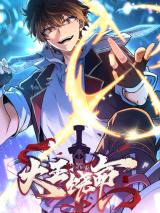The Story in 3 Sentences
An ordinary porter named Arnold, ground down by a society that despises his kind, endures daily humiliations in the deadly, color-coded dungeons until a desperate act of theft grants him unimaginable, god-like power.
This sudden shift in fortune throws him into a brutal game against eight other divine champions and the very gods who empowered them, forcing him to choose between becoming the world’s tyrant or its unlikely savior.
His journey arcs from a reactive, often foolish survivor into a hardened force of nature, ultimately confronting his creators on the shores of a mythical city to decide the fate of humanity itself.
Why It Stands Out
1. The Underdog’s Raw, Unfiltered Ascent
This isn’t a tale of a cool, calculating genius. It’s about Arnold, a genuinely flawed and often impulsive man whose rise feels earned through grit, mistakes, and sheer, desperate will. His early chapters are a masterclass in portraying the crushing weight of systemic oppression, making his eventual, explosive power-up a cathartic release for every reader who’s ever felt powerless. The story doesn’t shy away from his stupidity or anger, making his victories feel harder-won and his character growth profoundly satisfying.
2. A World Where Power Doesn’t Erase Humanity
Unlike many power fantasies, Arnold’s godly abilities don’t turn him into an emotionless machine. He remains deeply human, wrestling with rage, doubt, and the moral ambiguity of his power. The novel explores whether strength lent by oppressors can be used to destroy them, creating a constant, thrilling tension. The world itself, a chaotic blend of modern, medieval, and supernatural elements, serves as a perfect, unstable backdrop for his chaotic rise, where societal rules are constantly being rewritten by force.
3. A Community-Driven Narrative Pulse
The author’s unique engagement, using polls to let fans influence the story’s direction, creates a dynamic, almost live-wire reading experience. This direct line to the audience fosters a dedicated community, turning the novel into a shared journey. It’s a gamble that pays off, making the plot feel less preordained and more like a thrilling, collective adventure where the next twist is genuinely unknown, even to the author.
Characters That Leave a Mark
There’s Maya – the guild assistant whose quiet efficiency and occasional flashes of concern offer a rare, grounding counterpoint to the world’s brutality, her interactions with Arnold hinting at a deeper, unspoken history.
You’ll meet John, the authoritative figure whose swift, decisive actions, like rushing Maya to the hospital, reveal a layer of protective loyalty beneath his commanding exterior, making him more than just a boss.
And Cetus? They’re the one who becomes the silent, eternal stage for the story’s final, contemplative act, a living, mythical city whose vast, indifferent presence underscores the monumental scale of Arnold’s ultimate choices.
The Flaws Fans Debate
The protagonist’s early lack of intelligence and tendency to make impulsive, frustrating decisions is a major point of contention, with some readers finding it realistic and others finding it intolerable.
The world-building is criticized for being inconsistent and illogical, mixing modern societal structures with medieval slavery and sci-fi elements without sufficient explanation, breaking immersion for detail-oriented readers.
The rapid pacing and “smooth sailing” plot progression after the initial setup can feel formulaic to some, lacking the depth and intricate planning found in more meticulously crafted fantasies, making the story feel like it prioritizes action over substance.
Must-Experience Arcs
Ch. 1–10: Daily Life in a Dungeon – description. This opening arc establishes the crushing, dehumanizing reality of Arnold’s existence as a porter, showcasing the casual cruelty he endures and setting the desperate, hopeless tone that makes his eventual power-up so impactful.
Ch. 50–55: War Arc – description. Marking a major escalation, this arc throws Arnold into large-scale conflict, testing his newfound powers against overwhelming odds and forcing him to confront the true cost of his abilities and the political machinations of his world.
Ch. 563: Epilogue – description. The story concludes not with a bang, but with a haunting, philosophical whisper as Arnold stands alone on the beach of Cetus, staring at an endless sea, leaving his final choice and the world’s fate suspended in profound, beautiful ambiguity.
Killer Quotes
“Kind sir, we have been roaming in the dungeon for a really long time, and my supplies have been drained. Could you offer me some water, sir?”
“The strong grew stronger, and the weak got weaker. There was no justice in this world, only power, and only the ones with power had the right to decide what was justice.”
“Can the strength lent by the Gods be sufficient to deal with them once and for all? Would he be able to defeat his creator? Or will he join the Gods instead?”
Cultural Impact
Fans frequently compare it to “Solo Leveling,” sparking endless online debates about which handles the “weak to strong” trope better, cementing its place in the modern webnovel canon.
The author’s candid warnings about the MC’s stupidity and the use of community polls became a unique talking point, fostering a dedicated, interactive fanbase that felt personally invested in the story’s direction.
Despite polarized reviews, its “Gold tier award-winning” status on WPC#130 and millions of views are a testament to its massive, if sometimes controversial, reach and popularity within the webnovel community.
Final Verdict
Start Here If You Want:
A cathartic power fantasy where the ultimate underdog gets his explosive, long-overdue revenge.
A protagonist who feels genuinely human, complete with all his frustrating flaws and relatable anger.
A fast-paced, community-influenced ride that doesn’t take itself too seriously and delivers on pure, unadulterated escalation.
Study If You Love:
Deconstructions of the “Chosen One” trope, exploring the moral weight and psychological toll of sudden, god-like power.
Narratives that examine systemic oppression and the messy, often ugly, path to revolution.
The unique phenomenon of audience participation in serialized fiction and how it shapes the creative process.
Avoid If You Prefer:
A hyper-competent, always-in-control main character who makes flawless strategic decisions.
Deep, meticulously consistent world-building with clearly defined rules and societal structures.
Stories with slow, deliberate pacing and a focus on intricate political or magical systems over raw, character-driven action.
